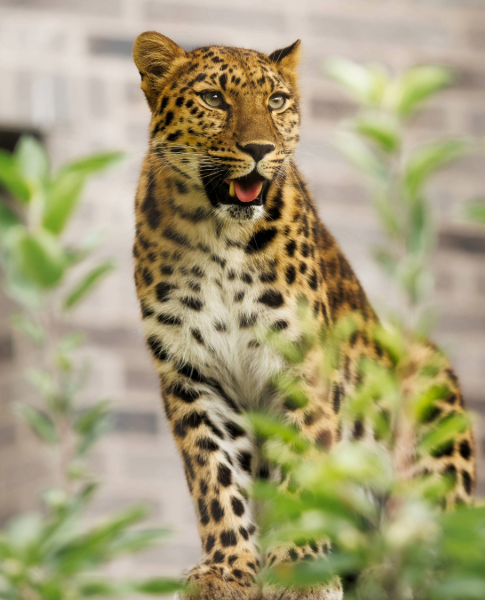Shop smart to save species
Posted on Thursday, September 28th, 2017
Biting into a delicious piece of chocolate does not invoke thoughts of Colobus monkeys, but maybe it should.
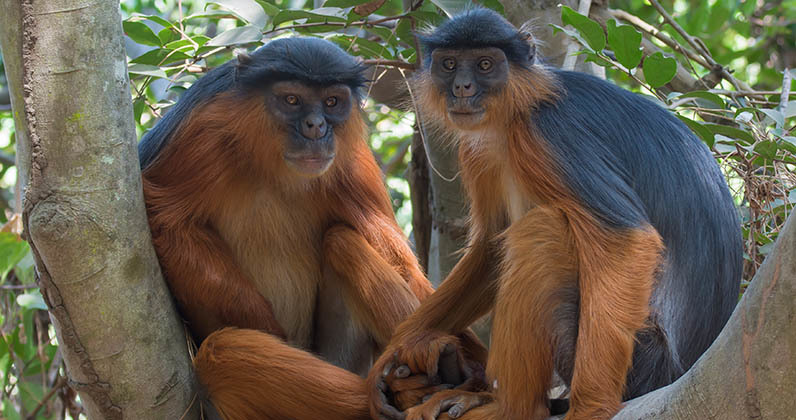
A 2015 study published in Tropical Conservation Science reported that the population of many West African old world monkeys species in Cote d’Ivoire (Ivory Coast) were near extinction or possibly extinct already. That list of species includes the Western Black and White Colobus (Colobus polykomos), the Bay Colobus (Procolobus badius badius) and the Miss Waldron’s Red Colobus (Procolobus badius waldroni), all cousins of the species of Colobus monkeys (Colobus guereza kikuyensis) that live here at Cleveland Metroparks Zoo.
One of the culprits behind these disappearing monkeys could be that piece of chocolate.

The average American consumes nearly 10 pounds of chocolate a year, and much of that cocoa is sourced from West Africa. Roughly 68% of the world’s supply of cocoa comes from West Africa. To meet this demand, cocoa farmers are clearing forested land in Ghana, Cote D’Ivoire and Nigeria and are pushing farther into habitat that is home to countless species — including many endangered old world monkeys — sometimes even farming in protected lands.
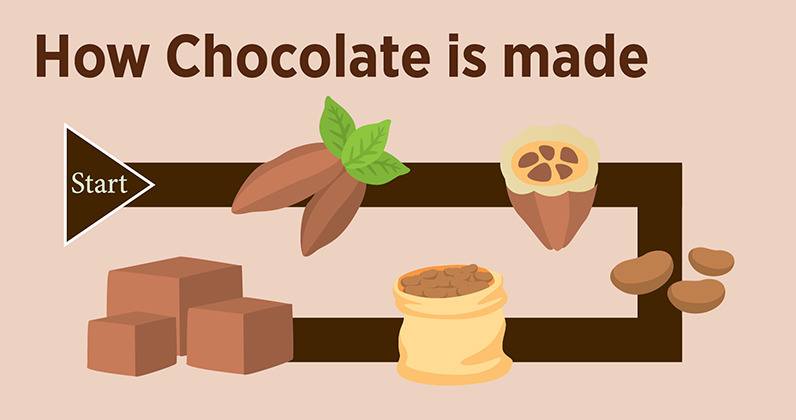
The process of making the chocolate we know and love starts with the cacao tree. The cacao tree produces seed pods, and inside those pods are cacao beans. The pods are harvested, and the beans are fermented and dried.
They are then sent to factories to be processed into many different cocoa products, including chocolate bars, cocoa powder and cocoa butter.
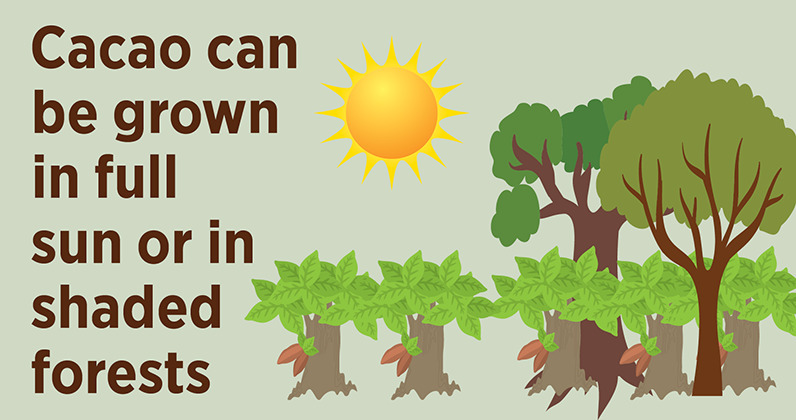
The deforestation threatening the habitat of many old world monkey species in West Africa is a direct result of unsustainable cacao farming. Cacao trees can be grown in several types of farming systems: full sun farming, planted shade farming, and rustic shade farming.
Planted shade farming and full sun farming offers little to no shade trees. Planted shade farms often cultivate other fruit trees to supplement farm income along with the cacao trees, whereas full sun farming plants only cacao trees.
Cacao trees are not a suitable habitat for monkeys; they don’t provide enough food and protection for animals. In order for a farming system to be habitable to wildlife, other types of trees must exist. Many farms in West Africa are choosing the full sun method because it is cost effective and needs less labor. Full sun farming leads to huge losses in biodiversity and results in a decline in primate species populations.
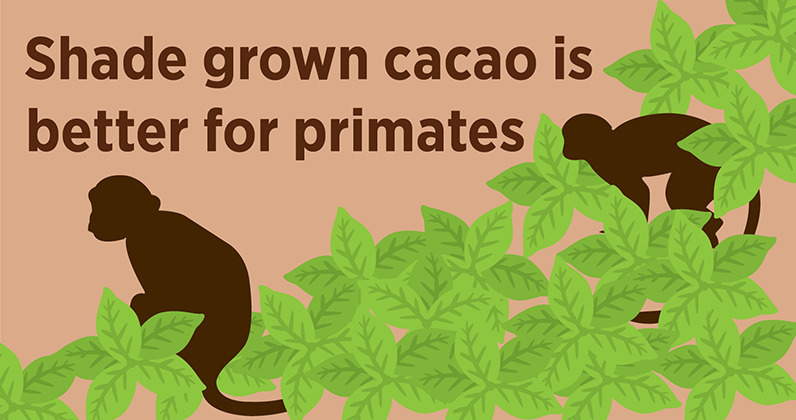
Farmers practicing rustic shade farming thin and modify the diversity of tree species to roughly 10% of the original abundance to allow for planted cacao trees. Though rustic shade systems should not be thought of as a total substitute for original forest habitat, they can be used to conserve endangered species. as well as act as wildlife corridors, which allow for species movement between areas, and secondary habitats for animals like nectar-eating bats, sloths and primates.
As consumers, it is hard to know the exact ramifications of our purchases when the product is grown halfway around the world, but organizations like the Rainforest Alliance and Cleveland Metroparks Zoo are helping educate the public on sustainable products.
Being a smart consumer is a strong way to help secure a future for wildlife with everyday actions.
The Rainforest Alliance has created certifications for growing cacao that not only help preserve shaded habitat, but also protect waterway barriers, restrict pesticide use and improve farmers’ livelihoods.
At this time, approximately 10% of cocoa is certified by the Rainforest Alliance. Increased consumer awareness and demand is needed to raise that percentage, which would mean more chocolate being grown sustainably, and more wildlife and habitats
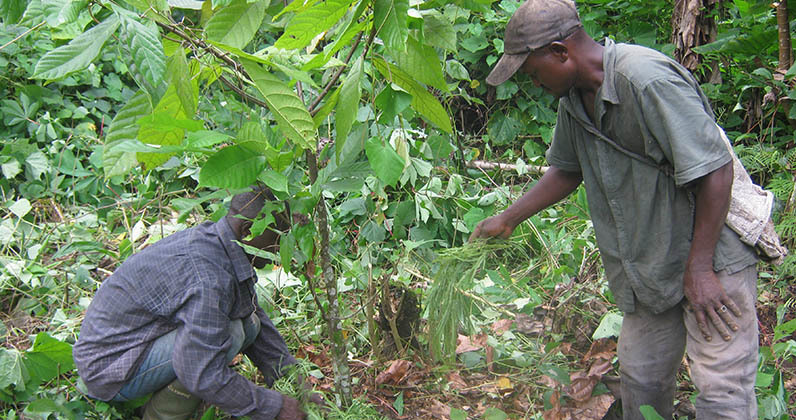
Photo courtesy of Trees ForTheFuture - Flickr. Creative commons license.
It is possible for primates and cacao farms to coexist, and with more support, sustainable systems could become more prevalent. For example, the golden-headed lion tamarin (below), a species found at your Zoo, is native to the Brazilian forests and has thrived in the rustic shaded cacao farms called cabrucas, many of which are certified.
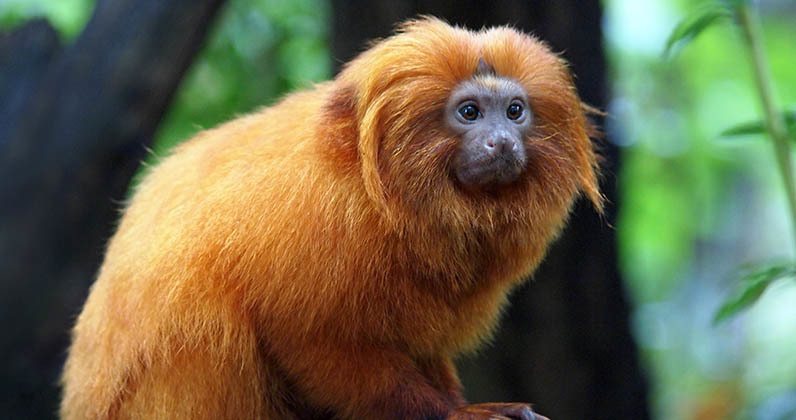
With mounting consumer demand for sustainable, shade grown chocolate and governmental support via incentives and protection, vulnerable species like the Western Black and White Colobus (below) can coexist successfully and peacefully with cacao tree farmers.
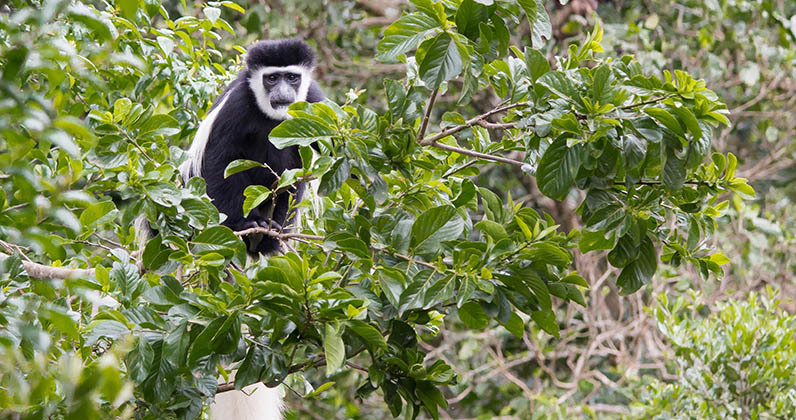
Be a smart shopper

Finding chocolate made with shade-grown cacao beans can be tricky in a busy grocery aisle. Fortunately, Rainforest Alliance actively certifies products to make it easier! Look for their logo on product labels or go to their website to find responsible products in your area.
Primate infographic
Download a printable infographic to share with your family and friends.


